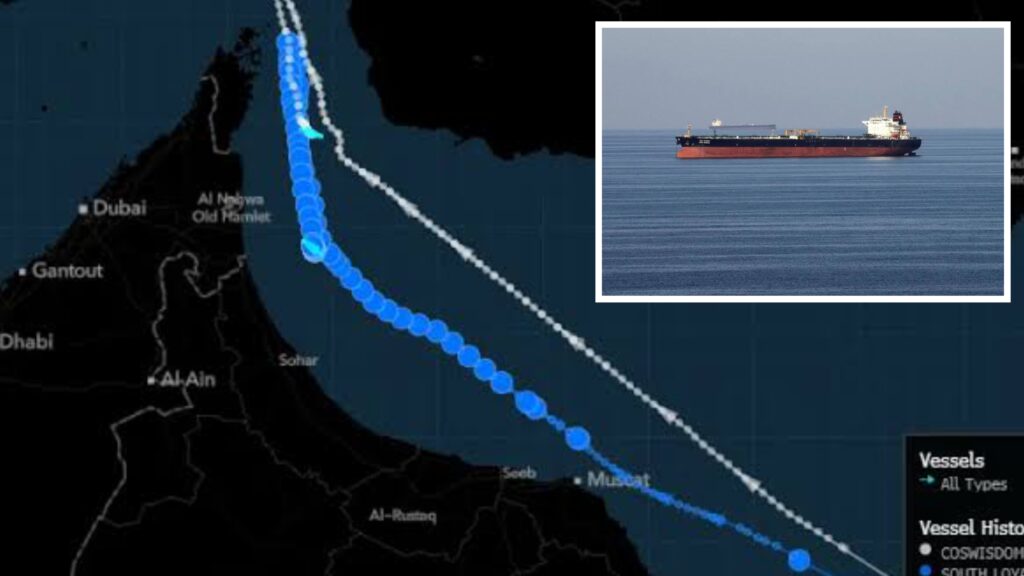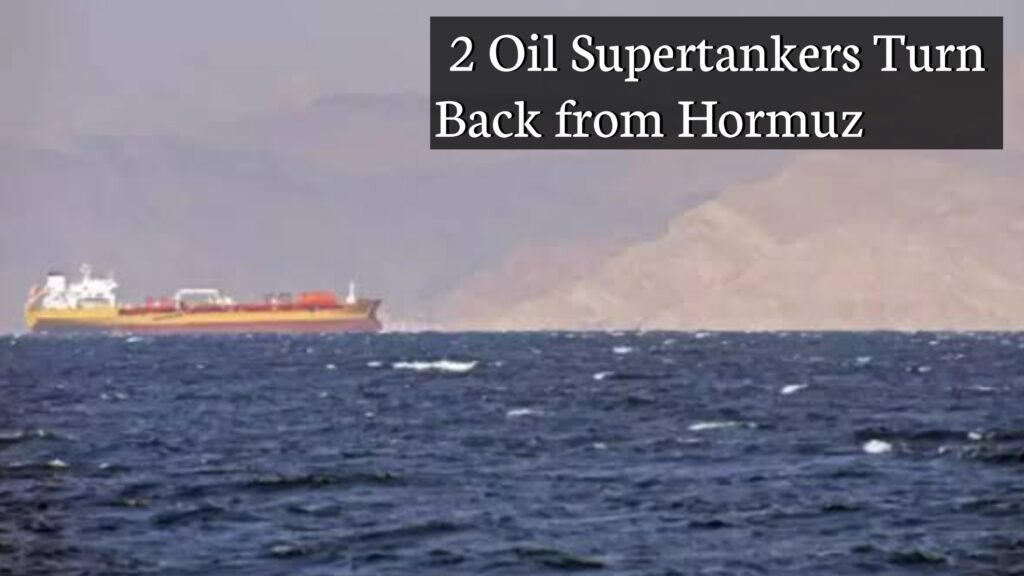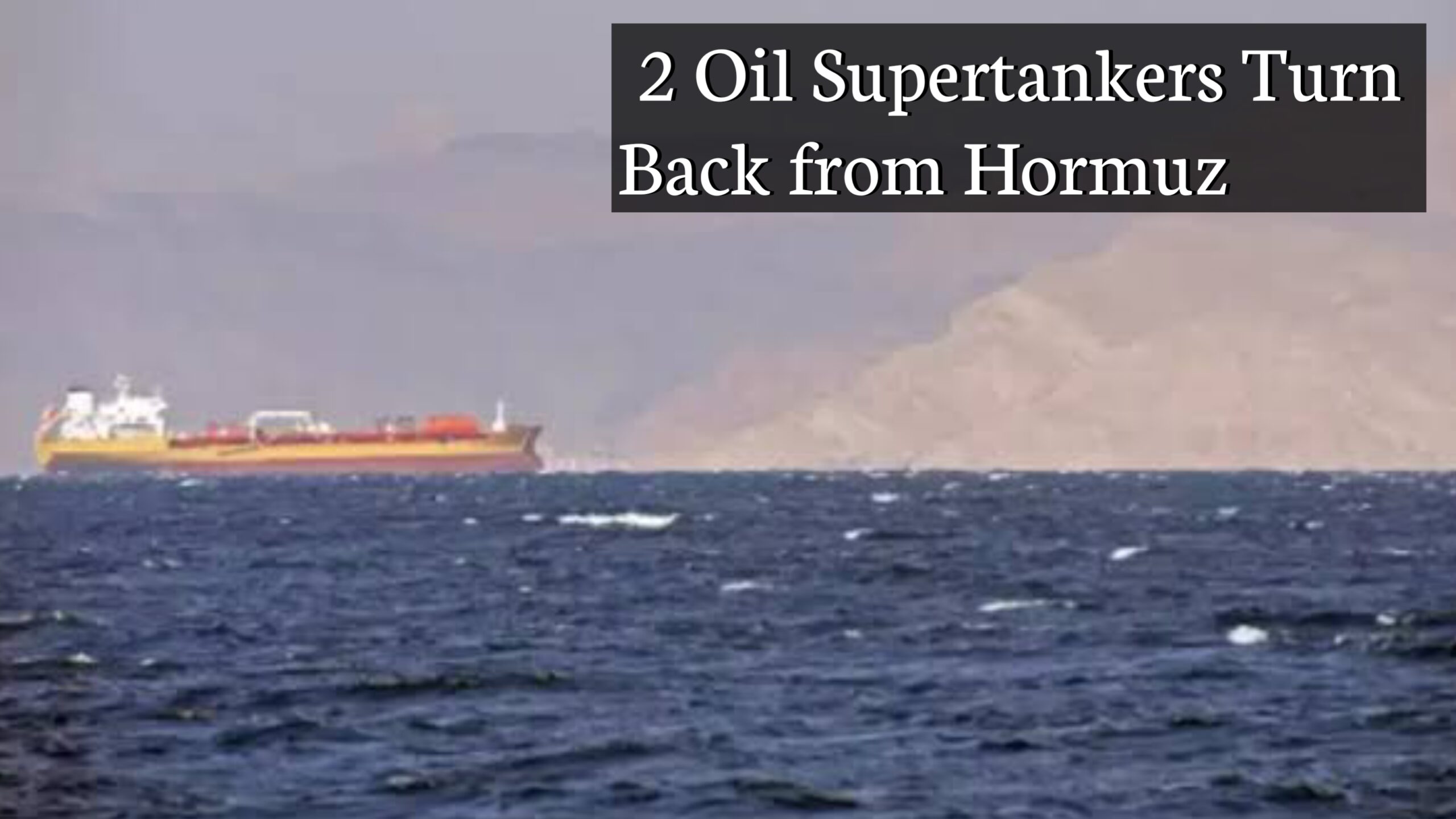Tensions in the Middle East are once again rippling across global energy markets. In a dramatic turn of events, 2 oil supertankers turned back from Hormuz, one of the world’s most critical oil transit chokepoints. The sudden reversal has sent shockwaves through global shipping and oil trade circles, raising fresh concerns about the safety of energy transport in the region.
Table of Contents
Why 2 Oil Supertankers Turn Back from Hormuz Matters
The Strait of Hormuz, a narrow waterway between Iran and Oman, is responsible for roughly 20% of global oil shipments. When 2 oil supertankers turn back from Hormuz, it’s not just a shipping update—it’s a signal of growing instability in a region where one spark can set off global economic tremors.

According to shipping sources, the two massive vessels, each carrying close to 2 million barrels of crude oil, made an unexpected turnaround following reports of increased military presence and drone activity near the strait. Their rerouting reflects not just company-level caution but also mounting geopolitical tension that threatens free maritime movement.
What Prompted the 2 Oil Supertankers to Turn Back from Hormuz?
There are several contributing factors to why 2 oil supertankers turn back from Hormuz this week. First, the recent escalation between Iran and Western forces—especially after airstrikes on Iranian nuclear and military infrastructure—has intensified regional instability. Unconfirmed reports also suggest that the tankers’ operators received risk alerts related to possible missile threats or maritime blockades in the area.
In recent days, the U.S. Navy has increased surveillance in the Gulf region, while Iran has hinted at “strategic responses,” including the potential to disrupt traffic in Hormuz. This heightened military atmosphere has made it unsafe for large, slow-moving commercial tankers to pass through without exposure to significant risk.
Global Oil Markets React to Hormuz Shipping Chaos
Markets were quick to respond to the incident. Crude oil prices rose nearly 2% in intraday trading after news broke that 2 oil supertankers turned back from Hormuz. Traders fear that if more vessels follow suit, a temporary supply squeeze could drive prices even higher, especially with ongoing OPEC+ supply cuts already limiting output.

Insurance premiums for ships sailing through the Gulf have also surged in the last 24 hours, reflecting increased risk assessments from international insurers. Energy analysts believe that even the perception of risk in Hormuz can lead to pricing spikes and volatility in downstream energy markets globally.
Broader Implications of Supertanker Withdrawal
The decision by these 2 oil supertankers to turn back from Hormuz could set a precedent for other maritime carriers operating in the region. Shipping companies may begin to reroute vessels through longer, more expensive paths like around the Cape of Good Hope, which could increase delivery times and overall shipping costs.
For importing nations heavily reliant on Gulf oil—such as India, China, and Japan—this situation demands close monitoring. Any long-term disruption could force governments to dip into reserves or seek alternate suppliers at higher rates.
Energy Security Concerns Grow Worldwide
As 2 oil supertankers turn back from Hormuz, global leaders and energy-dependent nations are beginning to reassess their preparedness for potential supply disruptions. The incident has reignited debates around energy security and the risks of relying too heavily on oil routes that pass through politically sensitive regions. Countries may now accelerate diversification strategies, such as boosting strategic reserves or securing long-term deals with alternative suppliers, to avoid being caught off guard if the Hormuz situation worsens.
Conclusion
In times of rising geopolitical tension, even a small incident can ripple across the global energy landscape. The news that 2 oil supertankers turn back from Hormuz is more than a regional issue—it reflects the fragility of global supply chains and how quickly uncertainty can escalate into market shock. As the situation develops, both policymakers and traders will be watching the Strait of Hormuz closely, knowing that what happens there can echo across the world.
Do Follow for daily news.
